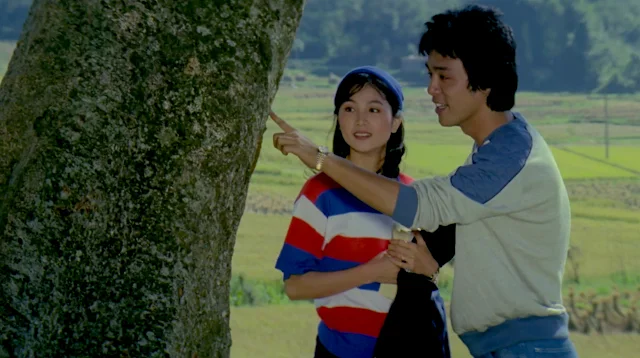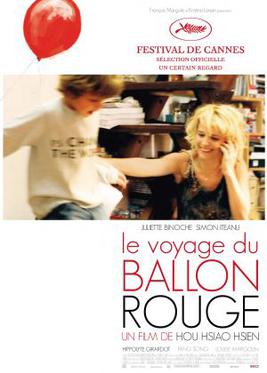The Red Balloon (Albert Lamorisse, 1956) is a short film that won the Oscar for best original screenplay, even though it's only a little over half an hour long and has only a few lines of spoken dialogue. In it, a boy (writer-director Lamorisse's young son, Pascal) on his way to school finds a large red balloon that has become caught in a lamppost. He soon discovers that he can't take the balloon with him on a bus or into his school, but the balloon is waiting for him after classes. He's also forbidden to bring the balloon into his home, but it floats up to his bedroom window and he lets it in. Over the next couple of days, the balloon tags along, sometimes getting the boy into trouble, until it's finally punctured by a rock fired from another boy's slingshot and slowly dies. Whereupon balloons from all over Paris flock to the boy, who gathers them and floats away over the rooftops. It's a small charmer, with ravishing views of 1950s Paris by cinematographer Edmond Séchan. The balloon becomes emblematic of childhood innocence in conflict with the daily grind of adulthood, which is why I think it still strikes a chord with audiences and, in the case of Taiwanese director Hou Hsiao-Hsien, inspired an
hommage:
The Voyage of the Red Balloon. Hou's film, which he co-wrote with François Margolin, is nearly four times the length of Lamorisse's and doesn't have such a neatly symbolic resolution. In it, a boy, Simon (Simon Iteanu), lives with his mother, Suzanne (Juliette Binoche), in a cramped Paris apartment. Suzanne is a puppeteer -- a profession that links her with childhood -- who hires a Chinese film student, Song (Fang Song), as a part-time nanny for Simon. Song is working on her own homage to
The Red Balloon, and we see bits of it as she poses Simon with a balloon and films it floating around the city. But much of Hou's film deals with the domestic turmoil that surrounds Simon as Suzanne, a divorcee, tries to cope with juggling career and household problems. She leases part of the building to Marc (Hippolyte Girardot), who has been stiffing her on the rent and tends to pop into her apartment at odd times to use her kitchen and leave it a mess. She is trying to evict him so she'll have a place for her daughter, who lives with Suzanne's ex-husband in Brussels, to stay when she comes to Paris in the summer. Simon patiently endures his mother's frazzled nerves and finds a companion in Song, who quietly manages to bring a little order into the household. By film's end, nothing is really resolved in their lives, but a red balloon peeps into the apartment windows and floats above the skylight over Simon's bed, as if childhood has persisted for the time being against all the assaults against it. It's a poetic, meditative kind of film that gains its strength from immersing us into the lives of others. It seems to me to stretch out a little longer than it should, but it features another terrific performance by Binoche.















